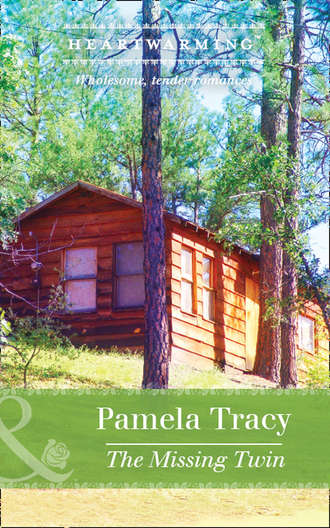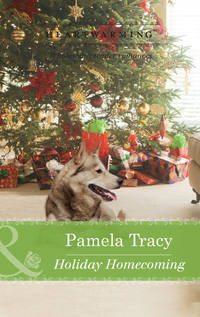
Полная версия
The Missing Twin
They felt broken.
The doctor continued to talk, spewing words like pericardioscentesis, pulmonary artery and penetrating chest injury. Best of all were the words no damage to vital organs.
The bullet hadn’t even hit bone.
It had been a few days since the shooting and he could now sit up very slowly with the help of the mechanisms that lifted the bed, do a thirty-minute turn from lying on his back to his side—complete with teeth gnashing and bad words—and finally walk to the bathroom, holding on to the nurse, who scolded him about the bad words. Now the doctor merely noted range of movement, breathing and how the wound looked. It was still a dozen shades of purple, black, green and blue.
It bothered Jake that the bullet was still inside him and it hurt like crazy every time they repacked the wound.
And every day the doctor prescribed rest.
Jake was alive and, thanks to good health, he’d be functioning in a few weeks and as good as new in a few months.
Thank you, God.
Jake also very much appreciated the Level 1 trauma center in Tucson.
The doctor spoke to Jake. “Don’t tire yourself out.”
“Did you get a look at the two men in the Cadillac?” Rafe asked the moment the doctor left. He opened his briefcase and took out a laptop, which he promptly turned on.
Jake groaned as he forced himself to sit up a few inches. He’d worked undercover in motorcycle gangs, drug gangs and had even pulled a stint in the Mexican mafia, but he’d never taken a bullet before. Nope, he’d had to become a forest ranger for that to happen. And he still had to answer to the police.
“Somewhat. They were both big. One was bald and neither smiled.”
“You just described half my deputies,” Rafe said. “But that matches what Angela Taylor saw.” As sheriff, Rafe was in charge of a county that covered two towns and a whole lot of rural area. He supervised six men and one woman.
“I wrote down part of the license plate number.”
“We found that in the garbage truck. The Cadillac belongs to a taxi driver in Phoenix. It was reported stolen the day before the kidnapping attempt.”
“Figures.”
For a few minutes they discussed what they both suspected: Miguel was involved with meth labs and bear poaching. He owed money and the boy was to be used as collateral.
“I’m surprised he shot me. They had more than one opportunity.”
“That’s what Angela said. She didn’t get the idea that shooting was on their agenda.”
Jake nodded. “They could have easily shot her, too. How’s she doing?”
“Pretty good. A bit shaken up.”
“And everyone else?”
“It’s strangely quiet on Jackrabbit Road.” Rafe punched a few keys and soon Jake was looking at Angela standing with Ted Dilliard. Both had blood smeared on their clothes. Jake’s, no doubt. She wasn’t looking at the camera, probably wasn’t aware her photo was being taken. She was looking at the garbage truck. The wind held her black hair in its grasp. It didn’t look as if she was wearing makeup, not that she needed to. There was that upturned chin again. If anything, that’s what had helped Jake recognize her.
The word beautiful didn’t even begin to describe her. Her shirt was yellow with giant white buttons, her jeans were formfitting and she wore white tennis shoes. He thought about the way she’d dashed across her front yard, intent on saving a small child.
She, more than anyone he knew, had reason to keep a low profile.
“She and Ted saved your life.”
He’d taken a bullet and this time he hadn’t thought twice about blowing his cover.
Rafe kept talking, “We’ve looked a little closer at Dilliard. Fifteen years ago he was married, one child, lived in a middle-class neighborhood and seemed to be living the American dream.”
Trying to stay upright was wearing Jake out. But he wanted to hear what Rafe was saying. He looked at the photos of Ted Dilliard. He was an awkward-looking man, and for all the years he’d lived on the tract of land, Jake had only met him once on rattlesnake retrieval.
“His daughter died of a drug overdose when she was seventeen. A few months later Ted and his wife divorced. She’s living in California, remarried. Ted’s a recluse here.”
Suddenly, Ted didn’t look awkward; he looked sad.
“Was Miguel dealing fifteen years ago?” Jake asked.
“We thought of that angle but Ted’s been renting the mobile home for ten years. No way he could have predicted the Rubios would move there just a year ago.” Rafe continued through about thirty photos, not just of Angela and Ted but of the cul-de-sac’s skid marks and the tire tracks across Ted’s yard.
Jake had to force his eyes to stay open. “Where’s Judy Parker? She’s not in any of these photos.”
Rafe shook his head. “According to both Ted and Angela, she never left her porch.”
“Think she knew it was me and not just some garbage man?”
“That’s the only good thing about her hanging back. She never got close enough to see your face, and we’ve worked hard to keep it out of the papers. Right now, I think she and Miguel are clueless. They don’t even know Albert’s involved.”
“They’ve always been clueless,” Jake agreed. “What about Angela? How will we keep her in the dark?”
Rafe hesitated, then said, “We’re not going to. I spoke with her already, told her I knew why she was here. She wasn’t exactly happy with her federal agent, and she has no idea there’s a connection between the two of you. Ted also recognized you. I told both of them you were involved in some undercover work. Neither was surprised. I answered their questions without going into detail. Thank goodness, Ms. Parker stayed on the porch, but I still think your garbage-collecting days are done. My guess is the Rubios will be lying low, not doing anything illegal. They’ll feel vulnerable, especially Judy.”
“Is Angela...?” Jake rethought the question. “Are Angela and Ted in any danger?”
“I don’t think so. Neither of the Rubios has so much as said thank-you to Ted or Angela. Ted’s not leaving his house. Angela’s a little wary, which makes sense. She’s barely settled in and this happens. I’m hoping that she’ll only need to give a deposition instead of personally testifying.”
“Good. That will help keep her safe.” If it wasn’t for the pain, Jake would scream because he couldn’t do anything to help while bedridden. How long would it be before he could walk again, work again, protect again?
“Anything you want to tell me?” Rafe said. “You’re usually not this quiet. I’m starting to think the doc was right, and I need to let you rest.”
“Nothing to tell.”
Rafe stood. “Just one more thing. Talk about coincidence—while you were doing Albert’s garbage run, he was the victim of a robbery.”
“Is he all right?”
Rafe nodded. “He wasn’t home. Said he was only gone two hours. Enough time for someone to break in. He’s mad as spit that someone would steal his belongings.”
Amazed, Jake said, “Have you been to Albert’s cabin? How can he tell anything is missing?”
Albert’s cabin was truly in the middle of nowhere. His driveway was identifiable by an opening in the weeds. He was a hoarder. His long-deceased father had been hoarder, too. Jake figured that somewhere in Albert’s house there could be anything from a letter signed by George Washington to a Model-T Ford. That’s how eclectic Albert’s taste was.
“What’s missing?”
“Something called Bisbee Blue.”
Now Jake understood. Albert’s grandfather had been a miner at the copper mine in Bisbee. He’d recognized what the Phelps Dodge Corporation did not. The waste rock surrounding copper contained turquoise. Unlike many of his fellow workers, Albert’s grandfather hadn’t taken the beautiful hard stone home in his lunch box to sell. He’d kept it.
“I’ve seen a lot of Albert’s Bisbee Blue.” Jake pictured the boxes of turquoise, some polished nuggets, some rough, broken pieces the size of his hand all the way down to just a fingernail. Albert had most of the treasure stored in boxes. Some distant Cunningham relative had framed a few pieces.
Rafe shook his head. “None of it authenticated or insured.”
Jake closed his eyes, picturing the blue-green mineral formed by copper and iron that Albert cherished. What a Monday morning. Albert getting robbed, Billy almost getting kidnapped, Angela putting herself in harm’s way.
She had wound up in his neck of the woods unintentionally, sure, but now that Angela was here, he’d make up for what happened on the bus.
* * *
SATURDAY MORNING, WITH a fascination that both worried and impressed Angela, Celia stood in her favorite spot next to their big living-room window and peered around the curtain. She even held a notebook in which she recorded sightings.
“They might see you,” Angela said, eyeing the notebook and remembering how she’d kept one for the first few years on the run. She recorded the comings and goings of neighbors, the staff at the grocery store and every person who’d walked by their house.
Those first two years, when she and Marena lived together, Marena had taken the dominant role, reassuring Angela. It was a reversal for the twins. All their lives, Angela—make that Sophia Erickson—had been the risk-taker. She’d jumped in the deep end of the pool at age four. She’d had the nanny take her to the skateboard park at age five. She’d zip-lined at camp when she just six. Marena had been the bookworm. She’d loved the pool, but she’d taken a scooter and not a skateboard to the skateboard park and had only zip-lined hooked to her sister.
She’d rarely instigated.
But, in those first years in witness protection, Marena had been a single mother, too busy to let every shadow scare her.
Angela’s existence had been all about guilt and fear. What had she done? Buck had told her she had no reason to feel guilty and that fear was a good thing. “We had one young girl,” he said, “who couldn’t stay away from her friends. Only thing was, they weren’t really friends.”
All those years ago she hadn’t asked what happened; she knew.
Celia said, “I think they’re moving.”
Angela came to stand beside her. “What have you seen?”
“Lots of suitcases, but I can’t tell if they’re taking them out to that black truck or if they’re taking them inside. Plus, there’s a guy who looked a lot like the husband.”
“It’s not our business and I hope they are moving. Now, put your notebook away,” Angela said. “We’re going shopping.”
It was a beautiful day, with a predicted high in the sixties. Both Celia and Angela were ready to spread their wings.
“I can’t believe school starts on Monday.” Celia jogged out to the car, tucking her cell phone into her purse and smiling. She shot one more look at the Rubio place. “You know, ever since those men tried to take Billy, I’ve felt safer.”
It had to do with being a teenager. Great declarations would emerge in the middle of the most normal activities. “What do you mean?”
“Well, when I saw what you were willing to do for that little boy, I realized you’d do double for me.”
Based on how much Angela had laid out for dental bills, those teeth had better be strong.
Then, without so much as a transition, Celia changed the subject. “So, how much do I get to spend?”
“Three new outfits. We’ll decide on cost as we go.” Angela knew Celia. She wanted to go into Tucson to shop in a big mall. Angela wanted to do some investigating in both Scorpion Ridge and Adobe Hills. She had to be careful. The problem with searching for someone who was living under witness protection was she just couldn’t go into a shop, show a picture and say, “Have you seen this woman?”
If someone else was looking for Marena, they might get tipped off. If no one was looking for Marena, they might suddenly find reason to.
During the twenty-minute drive to Scorpion Ridge, Angela and Celia bargained. Celia agreed to give the clothing store in Scorpion Ridge a fair shot if Angela agreed to go to Tucson and do some mall shopping, too.
Especially since Celia was fairly certain that any small-town clothing store would not have what she wanted.
“Fair shot,” Angela reminded her niece.
At thirteen, Angela had gone shopping pretty much whenever and wherever she’d wanted. The mall had certainly been a favorite place, but more often she and her sister had shopped at luxury boutiques, never thinking about the cost.
Marena had been the clothes expert. Usually, Angela just got what Marena did but in a different color.
“This is cute,” Celia admitted after Angela parked the car. Betsy’s Bests, or BBs, was in a historic building that had always been a store. It had display windows on each side of the front door. One half was devoted to women—both Angela’s age and older. The other was devoted to kids.
Pushing open the door, Angela stepped inside and was immediately greeted by the owner. “Come in. I’m Betsy Madison. This is my store. How may I help you?”
“I start school Monday,” Celia said. “Mom says I can have a few new outfits.”
Funny how the number three had changed to “a few.”
Betsy was no dummy. Before Angela could add a word, the woman had her arm around Celia’s shoulder, was calling her by her first name and was leading her to the back of the room. Angela followed. Betsy’s Bests might be historic on the outside but it was glass-and-white and full-service on the inside. A white pillar was in the middle of the teen section. Mannequins sat on benches around the pillar, wearing jeans, shorts, crop tops and T-shirts.
“Most girls your age go for shorts,” Betsy said. “How long have you been here in Scorpion Ridge? I don’t think I’ve seen you before, and I know most everyone.”
“A little over a week,” Celia said.
Angela gave the barest nod of her head. She’d taught Celia to be careful, not to share much, and to stay as close to the truth as possible.
“What grade are you going into?”
“Eighth.”
An hour later Celia had five pairs of shorts, three new shirts and a backpack that looked more like a purse.
The only thing she couldn’t find at BBs was a pair of shoes she liked. “I’ve my mother’s feet,” Celia explained to Betsy. “Really narrow and sometimes we really have to shop before we find a pair I’ll wear.”
Betsy didn’t as much as blink. Instead she looked at Angela and said, “Are you thinking of a new outfit, too?”
Angela wasn’t, but rapport had built up between Celia and Betsy, and Angela wanted to sustain it.
“I could use a few new things. I’ll be looking for work soon.”
“We have business attire.” Betsy led Angela back to the ladies department and soon Angela was modeling a pair of black pants and a black-and-white shirt. She had three other shirts and a skirt on hangers, waiting for their turn.
“Do you have this in red?” Angela asked.
“I did but not in your size. I sold it a few months ago.”
“Too bad.”
Betsy followed her back to the dressing room, talking about what else she had in red. She waited while Angela changed into a different shirt.
“This one is too small,” Angela said, holding it over the top of the dressing room door. “Do you have it a size larger?”
“No, we’ve been out of size tens for a while now.”
Angela shook her head. “I’m not having any luck.”
Suddenly her luck changed.
“How odd,” Betsy said.
“What?”
“You have the exact same taste as the woman who bought the red and white. She bought this shirt, too. It’s why I don’t have a size ten. And, I believe the light green half jacket is one she tried on. Turns out, the color didn’t work for her.”
Angela held her breath for a moment, pursing her lips and trying not to hope. She always tried on green; it was so pretty. But it never looked good.
It made a crazy kind of sense. After all, she’d always followed Marena’s taste in clothes. She just hadn’t realized she did it even when Marena wasn’t there.
She’d had a lifetime of practice. They’d watched the same shows. Had crushes on the same boys. The day Marena went into labor with Celia, Angela’d had a stomachache.
Angela didn’t dare ask the woman’s name. That was too probing, not something you asked a salesclerk you didn’t know. Finally, Angela laughed and said, “If you tell me she had long, narrow feet, I’ll think it more than a coincidence.”
“I haven’t seen Abigail in quite a while,” Betsy continued. “I think she’s probably moved. She even had a purse a little like yours, maybe smaller.”
It was all Angela could do to hide her emotions. Abigail. She had to remember that Marena was Abigail. She wanted to whoop with joy and relief, but it was definitely too early for that. She also wanted to sit down, weep, pray. As for the purse being similar, Angela’s bag was designed for concealing a gun. Abigail probably had the same purse for the same reason.
“As for shoes? No, she didn’t buy them here.”
After Abigail had lost her leg, shoes had become a different kind of purchase.
“You know,” Angela said easily, “I’ve some cousins in the area. One of the reasons we moved here. I don’t even know all their names. What is Abigail’s last name?”
Maybe Angela had gone too far with the questions. Betsy’s eyebrow raised and she asked, “Who are you related to?”
Not a question that Angela had anticipated, but she did the best she could and named her landlord. “Bernice Holliday.”
Betsy smiled. “Bernice has a pack of family. She’s in Florida, right?”
Stay as close to the truth as possible.
“Yes, Orlando.” That had been the address Angela had seen on the rental agreement.
“Abigail never said anything about having family nearby,” Betsy remarked. “Would you like me to ring you up now?”
She made it perfectly clear that no personal information would be given. Angela didn’t want to push it. She’d come shopping more often, build a rapport. Then she’d delve deeper.
“I imagine the women in town flock to your store,” Angela said. “I’m certainly impressed.”
Betsy laughed. “Believe it or not, most of my business is from tourists. They like that they might actually get to buy an outfit that their friends can’t find at a big box store.”
Angela held out her hand and introduced herself, irritated because she wanted to know more about Abigail, but didn’t want to push her luck.
“Why, you’re the woman who helped save Jake’s life. How incredibly brave.”
Angela deflected the attention from herself. “It was mostly our other neighbor Ted.”
“I’m not sure I’ve met him. But I don’t know everyone.”
“How well do you know Jake?” Angela asked.
“Quite well. My brother’s a ranger up at the Grand Canyon. They worked together a few months ago when Jake was up there. They have a lot in common. I don’t think either of them will ever settle down.”
That was something Angela hadn’t asked the sheriff about: Jake’s family.
“I’m surprised he’s not married. He’s—”
“Good-looking,” Betsy agreed.
“Does Jake have family nearby?” Angela queried, surprised that the thought of him being alone bothered her.
“I’m not sure.”
Celia cleared her throat. “Mom, we still need to go to Tucson for shoes.”
Angela headed for the counter, took her wallet from her purse and waited for Betsy to calculate the amount. Angela fingered the black-and-white outfit and even though she’d told herself to take it slow, she took a chance. “So, I might see this outfit in red if I’m in town long enough?”
“I really don’t think so,” Betsy said. “Abigail Tetterman is what I call a professional shopper. She knows as much about thread count and quality as I do. She came in at least once a week, but I haven’t seen her in about three months, so I’m pretty sure she moved on.”
The bell on the front door tinkled as another customer came in. Betsy pointed out a purse that would go perfectly with Angela’s new black-and-white outfit, then moved to greet her next customer.
It had only been just over a week and Angela had a name. Abigail Tetterman. No wonder the Feds were so strict about following protocol.
Looking down at the outfit draped over her arm, Angela could almost hear her sister’s voice. “You don’t have to worry about me. Worry about Celia.”
In Angela’s world, worry was a bit like love.
There was enough for everyone.
CHAPTER FIVE
“WHO’S ABIGAIL AND why did you ask so many questions about her?” Celia asked.
Angela thought Celia had been too involved in her shopping to overhear, but apparently not.
From the time Celia was old enough, she’d known Marena as Aunt Lorraine. It was easier than trying to explain name changes to a child. Telling Celia that Abigail—Angela had a name!—was her aunt Lorraine didn’t seem a good idea since Abigail was missing. Sometimes sticking close to the truth seemed impossible.
“Abigail’s someone I used to hang around with. I was hoping she was still in this area.”
“Really?”
“What do you mean really?” Angela knew how to turn one question into another.
“Well,” Celia said, “you’ve never talked about anyone named Abigail. You never talk about the people you used to know at all.”
“It might be time to change that,” Angela said. “But Abigail lived here a long time ago, so I’m not expecting much.”
Luckily, Celia didn’t ask anything else. Soon they left Interstate 10 and drove toward the heart of Tucson, a vibrant, good-sized city with a rich history that seemed to meld with the present. Tiny bungalows lined the streets. Then came the University of Arizona. School must be starting soon. Everywhere she looked young people waved to each other from bicycles, sat around outdoor restaurant tables and walked in groups. Celia pressed herself against the window.
She’d been hearing about college since she started kindergarten. Her eyes held the hopefulness of youth. Angela remembered feeling the same way. But Celia’s dream wasn’t just college; it was staying in the same place for four years and making friends.
Angela held back a sigh. Celia always picked up on her moods. No way could Angela explain how she was feeling right now. One mention of Abigail had inspired Angela to want to find out more without delay.
Abigail had been in Scorpion Ridge, just as she’d told Angela, just as Buck Topher had reiterated. The Feds hadn’t sent her anywhere else. No, they were pretty well done with the Erickson girls. They’d already helped them relocate, find jobs, start a new life.
Конец ознакомительного фрагмента.
Текст предоставлен ООО «ЛитРес».
Прочитайте эту книгу целиком, купив полную легальную версию на ЛитРес.
Безопасно оплатить книгу можно банковской картой Visa, MasterCard, Maestro, со счета мобильного телефона, с платежного терминала, в салоне МТС или Связной, через PayPal, WebMoney, Яндекс.Деньги, QIWI Кошелек, бонусными картами или другим удобным Вам способом.








